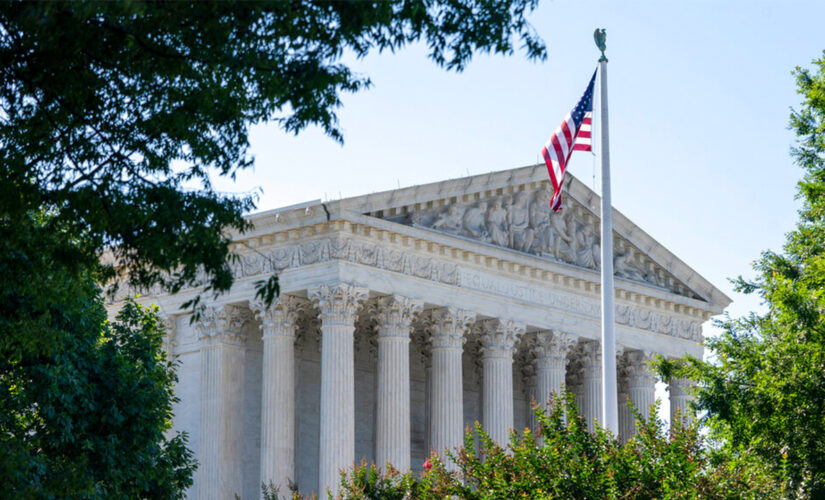NEWYou can now listen to Fox News articles!
The Supreme Court has ruled that Oklahoma can prosecute non-Native Americans who commit crimes against Native Americans on tribal lands – reversing a prior ruling that expanded tribal authority in the state.
The case stemmed from a state court decision to throw out the conviction against Victor Castro-Huerta, who is not Native American. Oklahoma prosecutors charged Castro-Huerta with malnourishment of his disabled 5-year-old stepdaughter, a member of the Eastern Band of Cherokee Indians.
The Supreme Court is seen Wednesday, June 29, 2022, in Washington.
(AP Photo/Jacquelyn Martin)
Castro-Huerta has since pleaded guilty to a federal child neglect charge in exchange for a seven-year prison term, though he has not been formally sentenced.
The 5-4 decision cut back on a 2020 ruling that said a large chunk of eastern Oklahoma remains an American Indian reservation. The first decision left the state unable to prosecute Native Americans accused of crimes on tribal lands that include most of Tulsa.
SUPREME COURT RULES IN FAVOR OF BURN PIT VETERAN IN WRONGFUL TERMINATION CASE
A state court later ruled that the Supreme Court decision also stripped the state of its ability to prosecute anyone for crimes committed on tribal land if either the victim or perpetrator is Native American. That would have left the federal government with sole authority to prosecute such cases, and federal officials had acknowledged that they lack the resources to prosecute all the crimes that have fallen to them.
But the high court’s new ruling said the state also can step in only when the victims are tribal members.
“The State’s interest in protecting crime victims includes both Indian and non-Indian victims,” Justice Brett Kavanaugh wrote for the court.
FILE: Associate Justice Neil Gorsuch stands during a group photo at the Supreme Court in Washington, April 23, 2021.
(Erin Schaff/The New York Times via AP, Pool, File)
After the 2020 decision, about 43% of Oklahoma is now considered Indian Country, and the issue of the state’s ability to prosecute those crimes “has suddenly assumed immense importance,” Kavanaugh wrote.
In a dissent joined by the court’s three liberal members, Justice Neil Gorsuch wrote that the decision “allows Oklahoma to intrude on a feature of tribal sovereignty recognized since the founding.”
“One can only hope the political branches and future courts will do their duty to honor this Nation’s promises even as we have failed today to do our own,” Gorsuch wrote.
To Cherokee Nation Principal Chief Chuck Hoskin Jr. said the tribe was “disappointed in this ruling” but that did not diminish the tribe’s commitment to meeting its public safety responsibilities and to protecting Oklahomans on its reservations and across the state.
He said the court “failed in its duty to honor this nation’s promises, defied Congress’s statutes and accepted the ‘lawless disregard of the Cherokee’s sovereignty,'” quoting in part from Gorsuch’s dissent.
The Supreme Court case involved the Muscogee reservation, but later rulings upheld the historic reservations of other Native American tribes in Oklahoma, including the Cherokee, Chickasaw, Choctaw, Quapaw and Seminole nations.
The Muscogee Nation called the ruling “an alarming step backward for justice on our reservation.”
CLICK HERE TO GET THE FOX NEWS APP
“Tribal governments in collaboration with the federal government are best suited to protect our people and administer justice on our reservations,” the tribe said in a statement.
The Associated Press contributed to this report.




